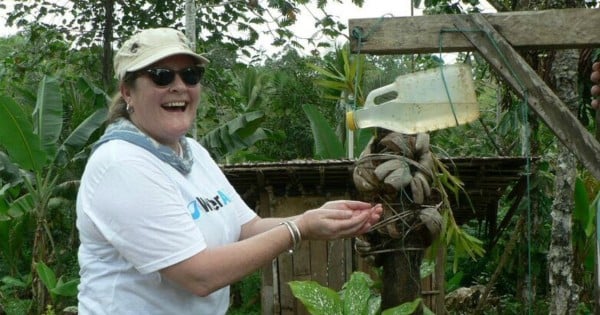
Each week we’ve been runnings Q&As with Australian women doing vital humanitarian and aid work. Women you may not have heard of.
This week, the final week of our series, we meet Rhonda Chapman an independent International Aid and Development Advisor with clients including the Australian government and some of our largest NGOs.
1. What do your roles entail on a day-to-day basis?
Working as an independent consultant with a range of clients, my days are anything but routine. While in Australia, the majority of my working days are spent working out of the co-working space I co-founded with my partner in country Victoria, where I am privileged to work with other independent workers from a wide range of businesses and sectors.
My clients include the Australian government and NGOs, and I spend much of my time working in person or remotely with colleagues who are seeking my advice on strategic, program or partnership challenges. I also spend a fair bit of time conducting reviews of Australian NGOs seeking government funding from DFAT or applying for tax-deductibility.
I’m regularly at meetings and in contact by phone or email with staff at WaterAid Australia as part of my role as a Board Member and Chair of the Programs and Advocacy Committee discussing policy and strategy issues. I spend many hours at the computer drafting, reviewing or completing reports, or sorting and analysing data in the preparation for a report. There are sometimes night-shift teleconferences with fellow panel members of the International Accountability Charter. Rarely are two weeks the same.



Top Comments
Thank you. Articles that celebrate women for their intelligence and moral actions, not their weight or glamour.
It is very important that their responses to questions are printed for us to give us a first hand account of life experiences in very challenging situations.